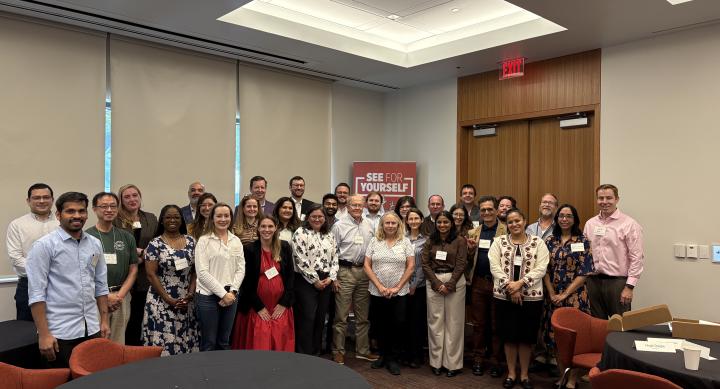
Beaumont, TX – April 14, 2025 – A workshop on April 14, 2025 was held at Lamar University to address the rapid expansion of Carbon Capture, Utilization, and Storage (CCUS) projects in the Gulf region. The workshop, titled "Carbon Management and Community Impacts in the Gulf Region," was organized by Andrew Waxman, Assistant Professor at the LBJ School at the University of Texas at Austin, and hosted by Liv Haselbach, Professor in Civil Engineering at Lamar University. The event was part of an initiative on the Economics of CCUS supported by the Alfred P. Sloan Foundation and was also supported by the Southeast Texas Urban Integrated Field Laboratory supported by the Department of Energy Office of Science.
The expansion of CCUS projects in the Gulf region is driven by federal and state subsidies and has the potential to reduce U.S. emissions substantially. However, it also raises concerns about the impact on fenceline communities, which have historically borne a disproportionate burden of industrial pollution. The workshop brought together a diverse group of stakeholders, including community groups, public and private sector representatives, and academics, to discuss the implications of this expansion and develop research and policy priorities.
The workshop featured presentations and panel discussions on key themes, including:
- Community Voice and Social License: How regulators and commercial operators can enhance social license around CCUS deployment and incorporate community perspectives into an equitable approach.
- Jobs, Community Benefits, and Economic Security: The economic impacts of CCUS deployment on communities and how to prepare for the future through workforce development.
- Health and Community Impact: Health and legal challenges associated with siting facilities near populated areas, including known and potential unknown health impacts and community compensation for adverse effects.
The workshop included presentations from the Houston CCS Alliance and ExxonMobil Low Carbon Solutions, as well as panel discussions featuring experts from UT Austin, Houston Advanced Research Center (HARC), Air Alliance Houston, Southern Methodist University, Carbon Solutions, and AngelouEconomics. A high level summary of the discussion can be found here.

